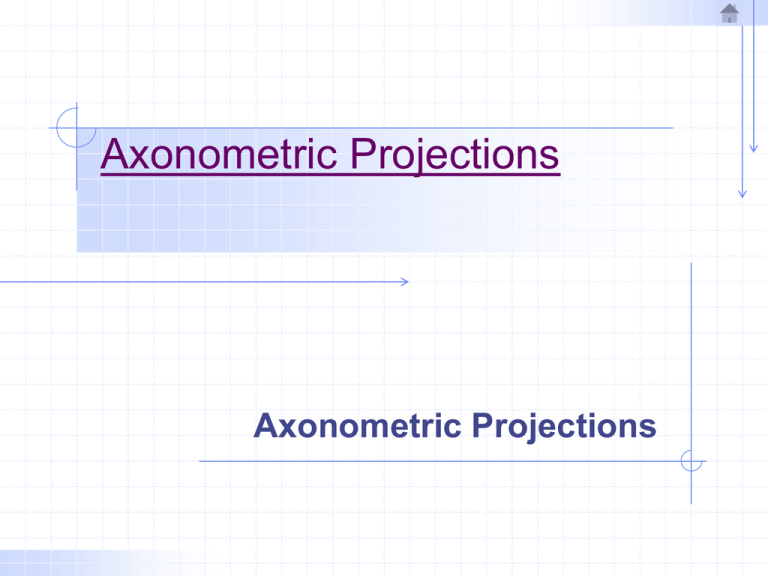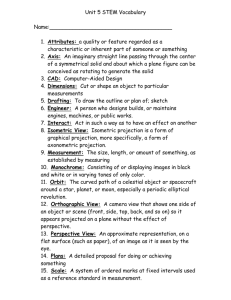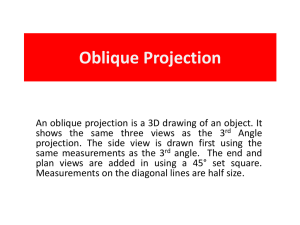Axonometric Projection PowerPoint Presentation
advertisement

Axonometric Projections Axonometric Projections Projections Classification of projections Axonometric Projection Types of Axonometric Projection The distinguishing feature of axonometric projection is the inclined position of the object with respect to the plane of projection. The axonometric axis is the intersection of the three edges of the cube at the corner (O). Axonometric projections are classified as isometric projection (a), dimetric projection (b), and trimetric projection (c). Axonometric Projection Types of Axonometric Projection In an Isometric projection all angles between the axonometric axes are equal. In a dimetric projection two of the axes make equal angles with the plane of projection and the third axis makes either a smaller or greater angle. In a trimetric projection no two axes make equal angles with the plane of projection. Axonometric Projection Isometric Drawing When a drawing is prepared with an isometric scale or when the object is actually projected on a plane of projection it is an isometric projection. When a drawing is prepared using an ordinary scale it is an isometric drawing. An isometric drawing is drawn full size. Axonometric Projection Positions of the Isometric Axes The isometric axes may be placed in any desired position according to the requirement of the drawing but the angle between the axes must remain equal or 120º. The choice of the directions of the axes is determined by the position from which the object is viewed or by the position that best describes the shape of the object. Axonometric Projection Steps in Making an Isometric Drawing Draw the enclosing box using the overall dimensions of the object with construction lines. Block in the various shapes and details using construction lines. Darken in all final lines.











